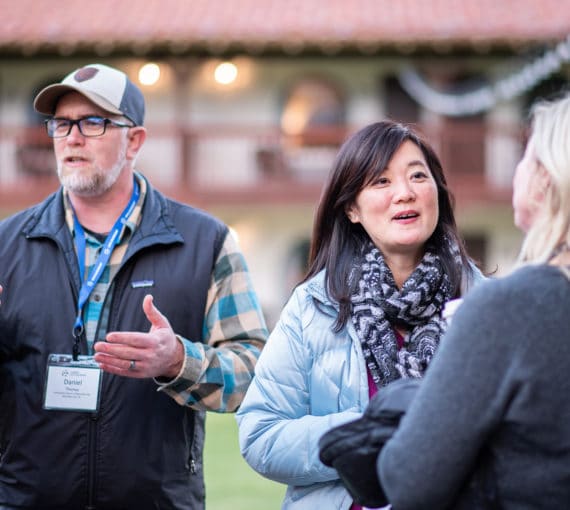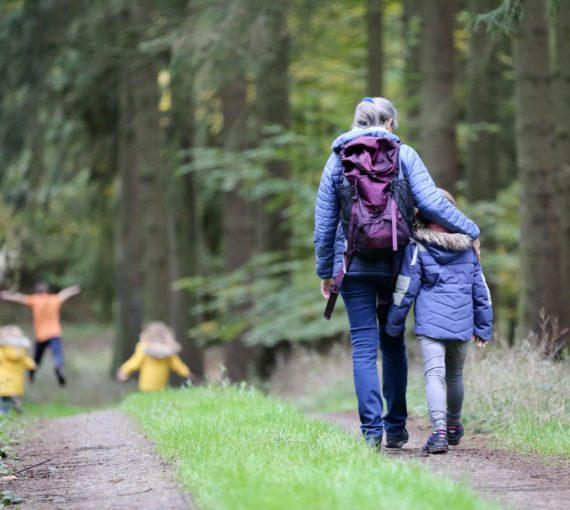
One of the best ways to talk about climate change is to connect over shared values like family and community. (Photo: Priscilla Du Preez via Unsplash)
One of the most important things you can do about climate change is talk about it.
People trust peers, family members and loved ones more than experts, scientists and environmental organizations. You can talk to people about climate change in ways we can’t. You’re more likely to open people’s minds.
This can be tough when it’s with people who don’t share your perspective. These resources can help you learn how to talk in ways that will bring you and your conversation partner closer, not further entrench you in existing positions.
Remember: people can’t communicate well when they feel threatened. Direct attacks — whether as arguments, evidence or name-calling — limit capacity for reason, empathy and self-reflection. Find common ground by first making people feel safe and heard.
10 ESSENTIAL CLIMATE CONVERSATION TIPS

1. Come with an open mind
Everyone’s experience and knowledge about climate change is different. Discussing the topic can stir up all sorts of emotions, like frustration, despair and embarrassment. Entering a conversation with a sense of moral superiority or an all-knowing attitude often intensifies these feelings. If you want someone to listen to you, focus on creating a sense of safety. Try to maintain an open mind without preconceived expectations.

2. Work together, not against each other
Solving climate change requires us to all work together. When someone is challenging your viewpoint, your impulse may be to dismiss their perspective and/or refute their claims. Directly contradicting someone may cause them to dig in their heels. Responses that dismiss the other person’s point of view will quickly turn conversations into arguments or debates. Respect the moral and emotional content of what the other person is saying. You may even find that they’re connected to your own!
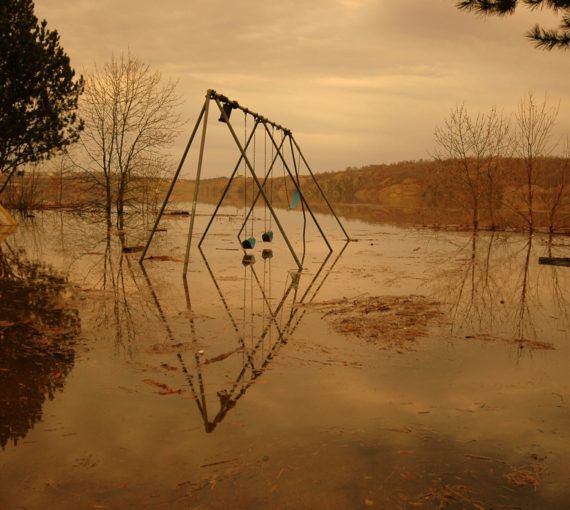
3. Experiment with conversation starters
It can be hard to start a climate change conversation. The first step is “ask.” Here are some questions you can use to break the ice.
- Has the heat wave, flood, forest fire, drought happening in your community affected you? How?
- Are you concerned about the security of jobs, food, homes or health as our climate changes?
- How do you feel about the youth-led climate strikes around the world?
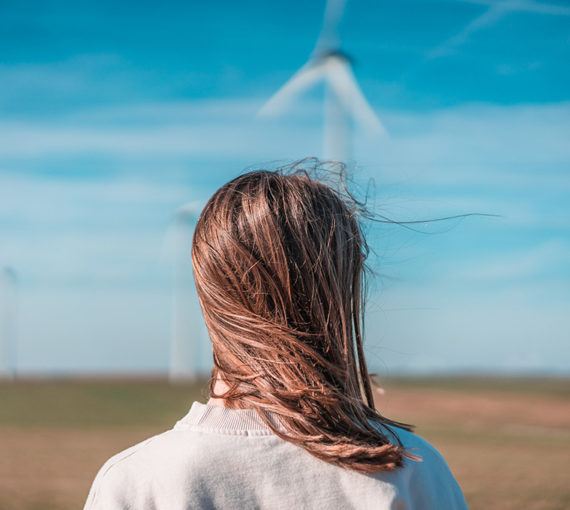
4. Find common ground
When discussing climate change with someone who doesn’t agree with you, it’s important to find common ground to build trust. It may feel daunting. Here are some examples you may agree on:
- We want a promising future for our kids and future generations.
- We want to be prepared for and protected from the impacts of extreme weather events.
- We want to be healthy and have clean air to breathe and clean water to drink.
- We want good, stable, well-paying jobs and economic security in a changing world.
- We care about nature and wildlife and the health of local and global ecosystems.
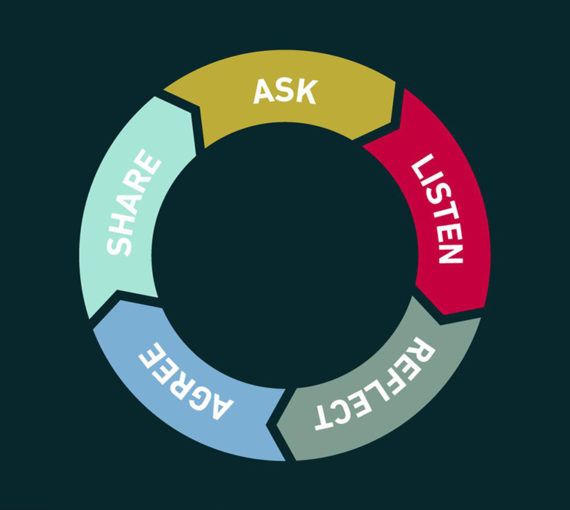
5. Try this conversation cycle
Karin Tamerius of Smart Politics developed a five-step conversation cycle that draws on her expertise in social and political psychology and extensive experience with online dialogues. This technique, where you ask, listen, reflect, agree and share can help you navigate difficult conversations and find common ground.
This handy graphic summarizes each of the five steps. Print it or save it to your phone.
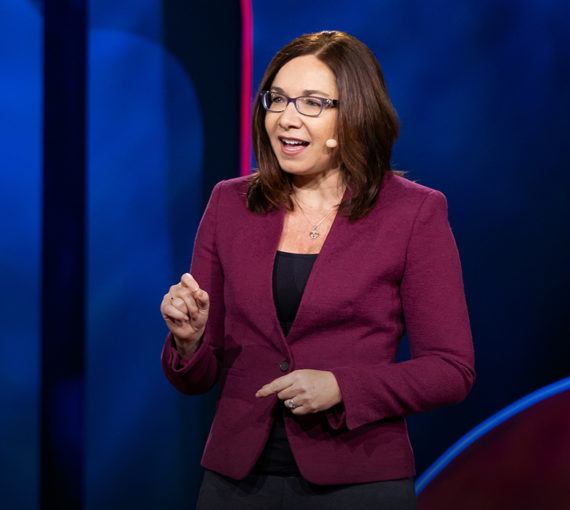
6. Connect over shared values
In this talk, climate scientist Katharine Hayhoe shows how the key to having a real discussion with someone who doesn’t believe in climate science is to connect over shared values like family, community and religion and not by rehashing the same data and facts that have been repeated for years. “We can’t give in to despair,” she says. “We have to go out and look for the hope we need to inspire us to act — and that hope begins with a conversation, today.”

7. Avoid facts. They don’t change minds
Economist John Kenneth Galbraith wrote, “Faced with the choice between changing one’s mind and proving there is no need to do so, almost everyone gets busy on the proof.”
In this article, James Clear examines the role of social connection when it comes to changing belief systems. It provides insight into how we approach any conversation where we intend to change someone’s core beliefs. Clear’s primary message is that convincing someone to change their mind is really the process of convincing them to change their tribe. “Facts don’t change our minds. Friendship does.”

8. Turn conflict into connection
I’m Right and You’re an Idiot is a book by James Hoggan. It reflects the narrative we often have in our heads when we communicate with people who don’t share our views. Hoggan argues that a toxic smog of adversarial rhetoric, propaganda and tribalism stifles discussion and debate, creates resistance to change and thwarts our ability to solve our collective problems, including climate change. Through interviews with thought leaders, Hoggan focuses on proven techniques to foster more powerful and effective communication.
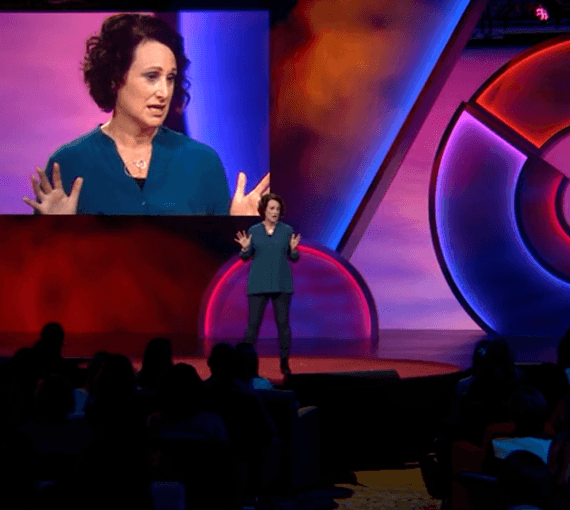
9. Create conditions for action
Social psychologist Renée Lertzman explores the emotional effects of facing environmental crises. Drawing from her own journey, she highlights the importance of open dialogue and shared understanding as pathways to relief and resilience. Lertzman shares how psychology, though often overlooked in environmental discussions, can offer useful tools to process trauma, navigate challenges and inspire meaningful action.
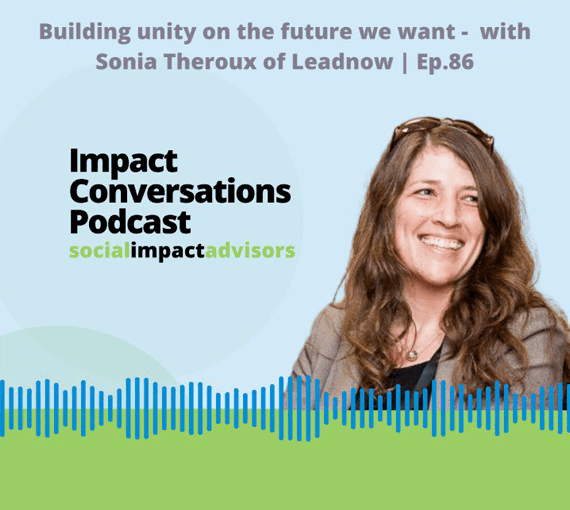
10. Build unity on the future we want
In this podcast, Sonia Theroux, former executive director of Leadnow, shares ideas about how to build unity around things that are important to communities. She talks about how leadership in this moment is about vision building, listening, finding hope and making space for civil discourse.

